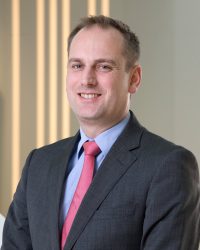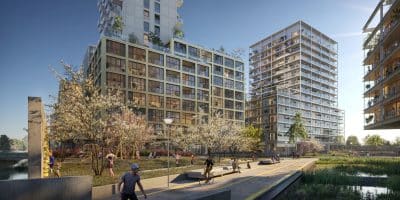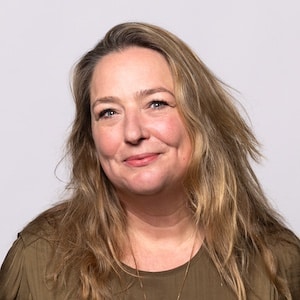AM: ‘Economically strong region makes room for local economy’
Area developer AM is committed to themes such as the inclusive city and climate-positive area development. What should we do to achieve the smart, green and healthy Metropolis of Tomorrow, according to Peter Heuvelink, director Northwest at AM?

Peter Heuvelink, director at AM
No, Peter Heuvelink needn’t think long about what he believes is the biggest challenge facing the Amsterdam Metropolitan Area: scarcity of space and its implications for energy security. “It is distressing to hear that companies need to put their building plans on hold because they can’t get a connection to the energy grid at the new premises, or can’t get a sufficient connection. Uncertainty about energy supply affects where companies locate. So this impacts the labour market. As well as the release of sites where people will eventually live.”
Wind turbines, says Heuvelink, are not the only solution to the looming energy shortage. “About the locations of the windmills, we can be quite critical. Often it is an example of monofunctional planning: of using space for one purpose only. We must get rid of that. We should for example construct buildings with a storage settling tank, for the collection of excess water, energy supply and diversity of functions. Or use largely vacant parking garages more intelligently. We need to get more creative to double, or maybe even triple or more, our scarce space.”
To strengthen the necessary creativity for this, mutual cooperation in the Amsterdam Metropolitan Area must be further strengthened, Heuvelink believes. “For every municipality in the region, the tasks at the local level are big. The tendency is to solve these locally. But an inhabitant of your municipality probably uses the entire region. They may work or recreate in another part of the region. As a municipality, you don’t have to excel in every area. If a nearby municipality does have starter homes or lots of villas, that might also be a good thing, as 1 + 1 = 3. If we work together on such challenges we can achieve greater things. An economically strong region also makes room to strengthen and grow the local economy.”
Quality of life in the Bajeskwartier
Heuvelink has been Northwest director at AM since 2016, so he knows the Amsterdam Metropolitan Area well. Together with AT Capital and Schröders, AM is developing the Bajeskwartier where the Amsterdam penitentiary used to be. As well as Wickevoort in Haarlemmermeer, with Rochdale the Kwadijkerpark in Purmerend and DeoNeo in Haarlem. The projects align with two of AM’s key issues: sustainability and social impact. “The Bajeskwartier and DeoNeo are focused on meeting. Here, you cannot enter your residential building directly from the parking garage. It takes a walk across a square. By doing so, you meet people and that contributes to inclusiveness and quality of life.” In Wickevoort, AM is working closely with a healthcare facility. “They are also considering buying some of the planned homes for their employees. So they can retain healthcare employees for the region.”
This keeps living in this region not something for just the happy few. Police officers, nurses and teachers can also find housing there. “Building cheaper is almost impossible. As area developers, there is little we can do about the cost of labour and materials. But there are other ways to make buying accessible,” says Heuvelink. With the new construction on Amsterdam’s Vreeswijkpad, for example, a buy-start arrangement ensures a somewhat lower sales price. “Also, as a region, we should do more to point out these types of projects to these groups at an earlier stage, so they could find out about mortgage options early on. Then – when the time comes – they’d know whether to apply for the project.”
CO2-free by 2030
AM uses its societal themes as a guide. “We always want our projects to add to those themes. We are currently broadening them: we want to develop our projects climate-positive by 2035 and that ESG factors and social impact in particular are given a more prominent role. That also ties in with the broad prosperity that the Amsterdam Economic Board is working on.”
With the housing shortage, the call for new housing is loud. At the same time, home prices are falling and mortgage rates are rising. Building fast, affordable and sustainable in these conditions is not easy, Heuvelink confirms. “Investors are getting hesitant to get on board. At the same time, the cost of materials is rising. That is why we sometimes have to make concessions on appearance and quality. On sustainability, we don’t compromise, because we are building for the long term.”
An important development is the modular building systems that more and more builders are working with. Parent company BAM, for example, offers the wooden Flow house, which is factory-made and can be built almost CO2 neutral. “Standardisation, I think, is an important solution to this issue. We are all facing a shortage of builders. The question will soon be: will we use them to make our existing housing stock more sustainable or to build new homes?”
“Practically trained professionals are the new rich,” Heuvelink read the other day in an interview with a principal at a secondary vocational school. “In London, some plumbers charge up to £200 an hour. Being able to build something is a scarce commodity these days. Our IT systems can’t just take over such jobs. So we will also have to start rewarding the work differently, but that in turn affects house prices.”
Valuable collisions
Heuvelink is pleased that the labour market and personnel shortages are also high on the Amsterdam Economic Board’s agenda. As a member of the Network Council, he enjoys attending the events the Amsterdam Economic Board organises for its members. “The other day I was at a meeting where we were looking 20 years ahead. How would people live then? How will we make use of areas? I use such viewpoints in my work for AM. Because, of course, the big question is also what impact that would have on area development.”
During corona, he missed getting together. “I’ve noticed people don’t easily attend meetings anymore. They’ll say: I’ll listen to a podcast, that’s useful too. But those meetings are always helpful. You’ll bump into someone and talk for a while. That is valuable. Especially in a network region like ours.”
Text: Mirjam Streefkerk
Want to join the Network Council too?
Membership of the Network Council offers your organisation many benefits. Such as expanding your network with interesting partners within regional government, businesses, educational and knowledge institutions and civil society organisations. Read more and become a member!
11 April 2023
Read more about
Contact us
Want to keep up to date?
Get the best regional news and events (in Dutch) via the Board Update newsletter
Share this news
Want to keep informed?
Follow us daily on LinkedIn and sign up for the Board Update newsletter.
Read more
- What AI applications are we already deploying for healthcare and wellbeing? What ...
- Adyen is one of the great success stories of Amsterdam’s tech ...
- Together with enthusiastic partners in three coalitions, the Amsterdam Economic Board is ...


